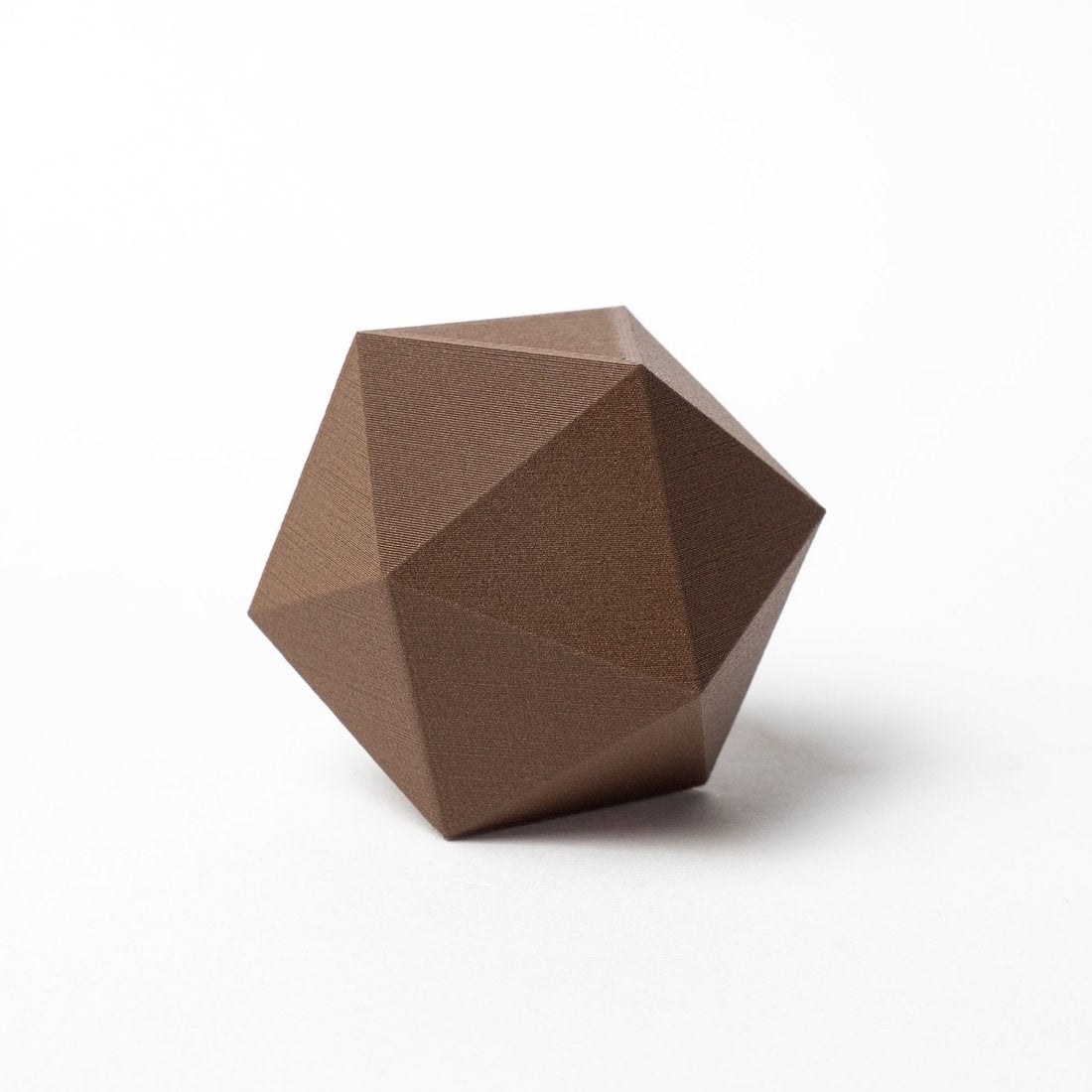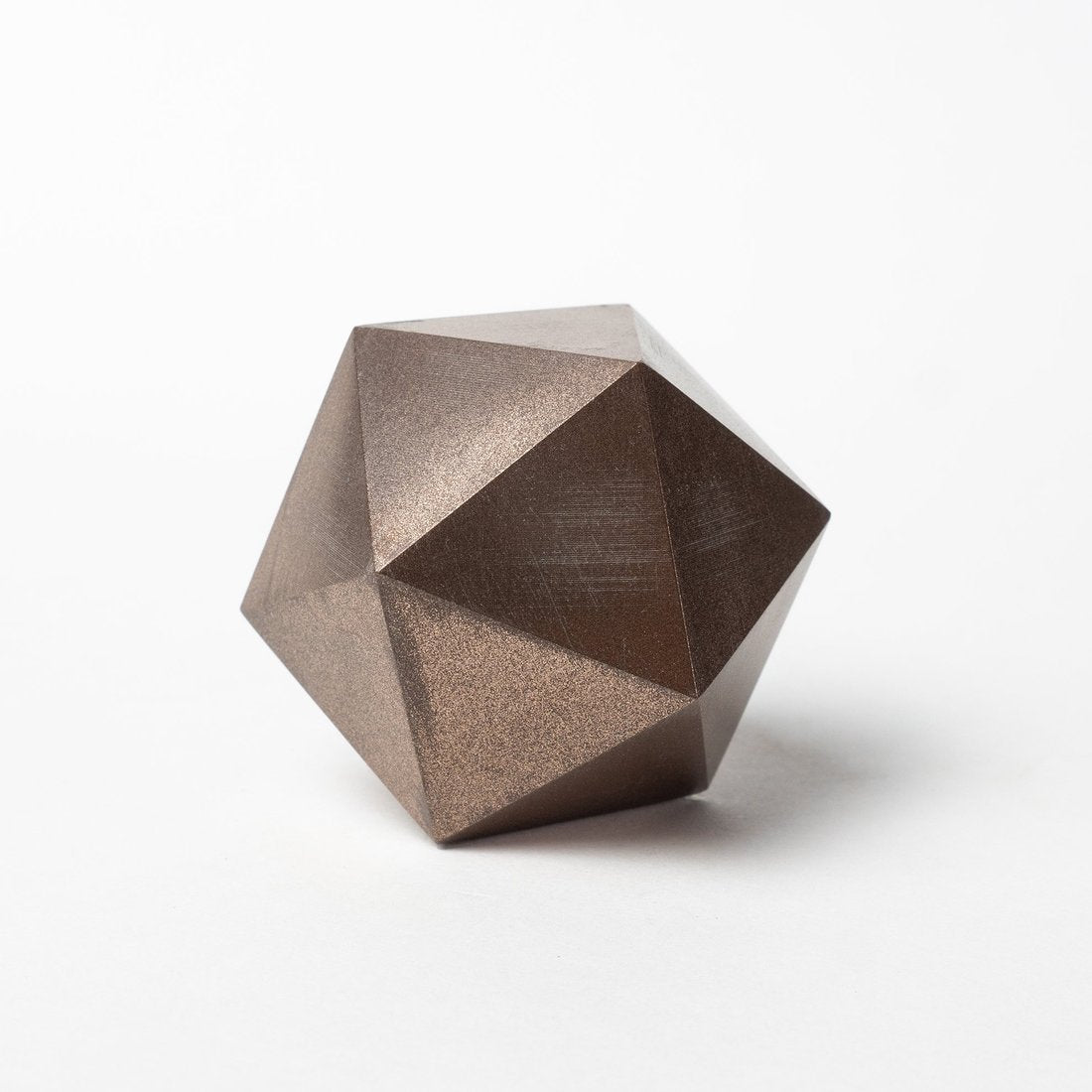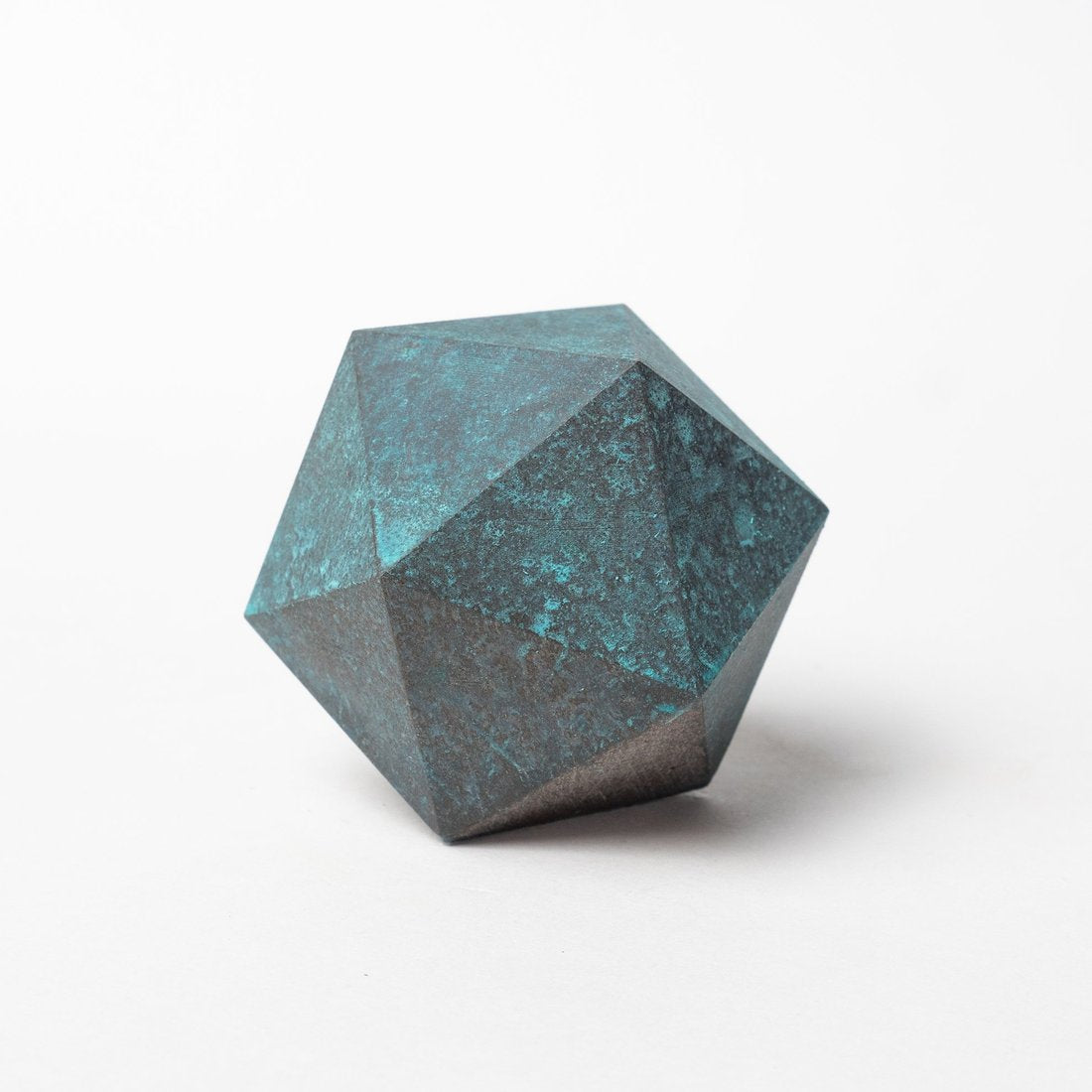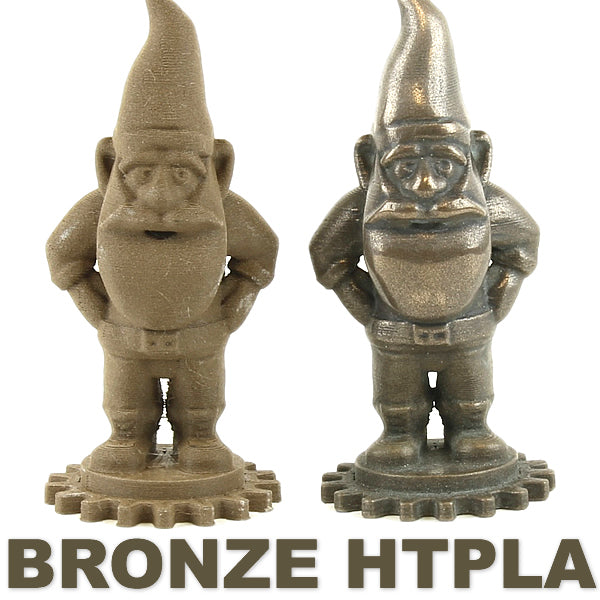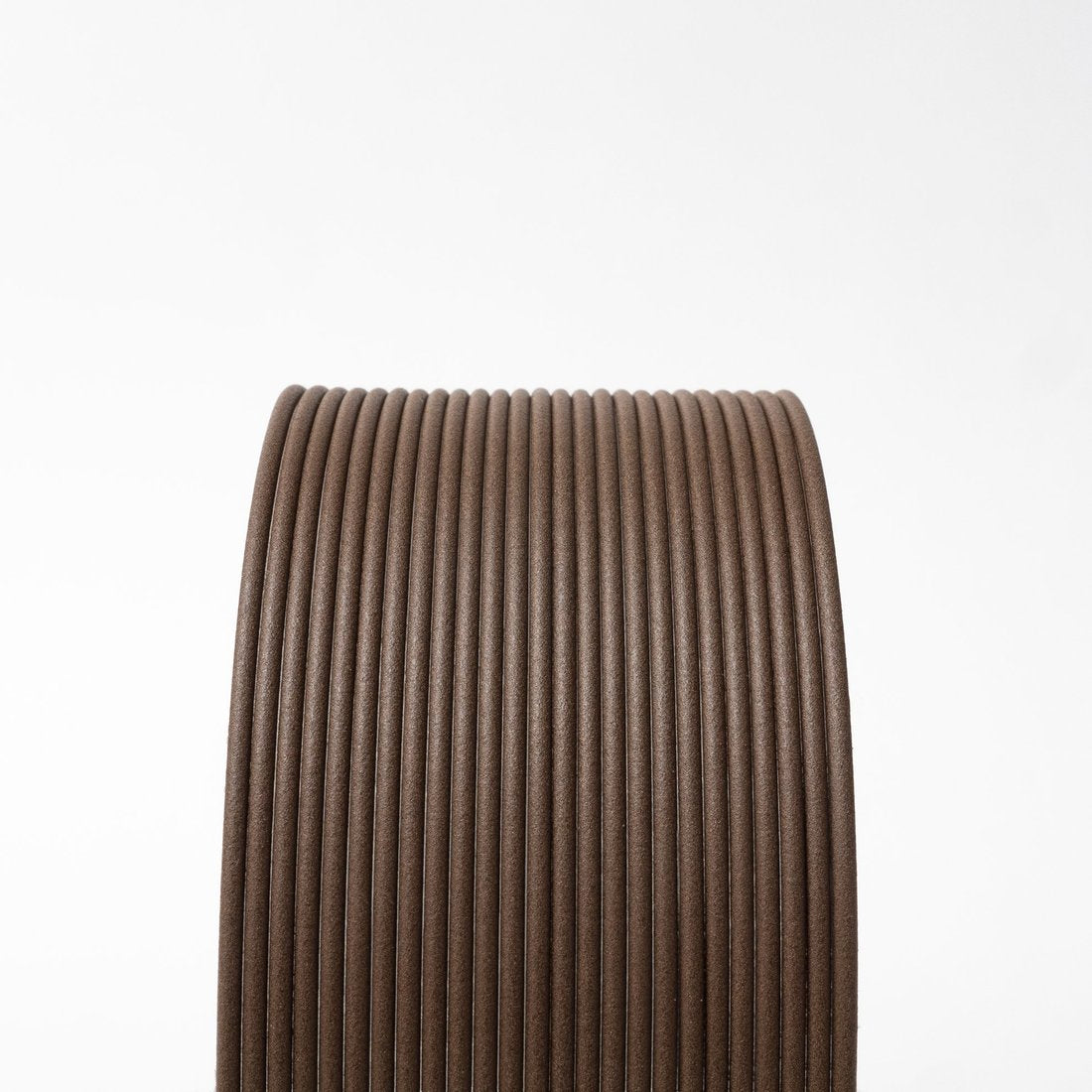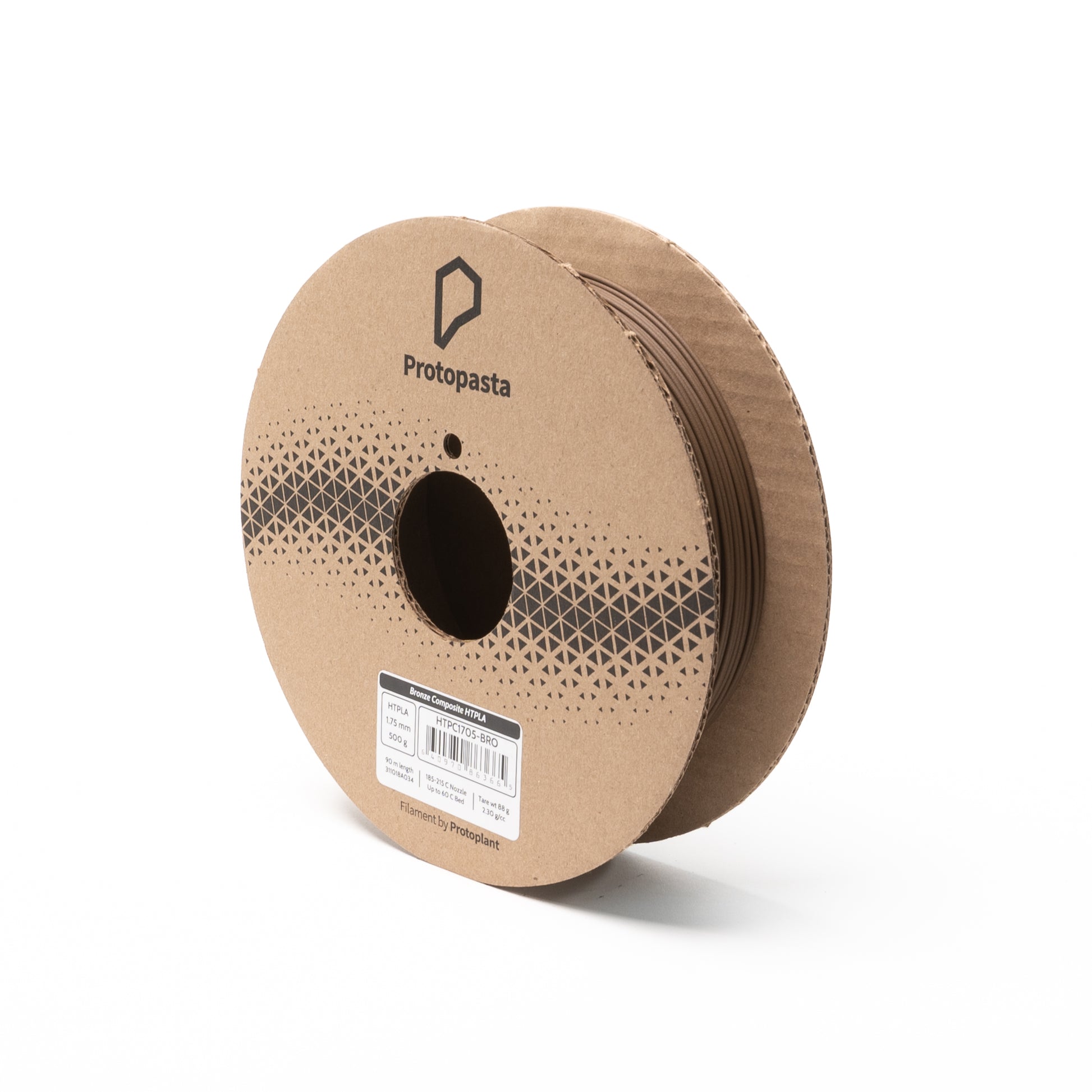Protopasta Bronze Metal Composite HTPLA - 1.75mm - 0.5 KG
Couldn't load pickup availability
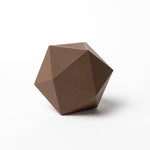
Brick or cast bronze? Brush, polish, or patina and enjoy!
Introducing Bronze Composite HTPLA. Prints like plastic, but finishes like real metal for beautiful, durable parts from most standard 3D printers. So many finishing possibilities, but here are some ideas to get you started (see sample Protognomes in product photos).
- Heat treat your HTPLA print to survive harsher environments like the hot sun or a warm polishing wheel (more details below)
- Wire Brush to expose metal for future oxidation or a bright, satin finish
- Rock tumble with steel shot for darker, but smooth, shiny look
- Paint part (black for example) to fill recesses with a contrasting color
- Polish with a rotary tool, cotton buff, and polishing compound for a bright, mirror finish on high spots (darkens low spots)
- Polish with paper for a clean, smooth, and bright finish with less darkening
- Patina (oxidize) exposed metal naturally or accelerate with a 50/50 vinegar/hydrogen peroxide mixture saturated with salt. Place in sealed plastic bag to retain moisture. Heat further accelerates reaction.
Try these techniques separately or combine! Change the order or try something new. If you discover a new technique, make something beautiful, or discover something unexpected, share it! When you've got that perfect, WOW finish, consider preserving it with a clear coat or brush applicable water-based, food-safe, and dishwasher safe coating like Modge Podge. Practice your finishing a on a test piece like Protognome (download here).
- Faux brick or stone
- Fixtures or hardware
- Knobs or buttons
- Heat sinks or exchangers
- Fine art & sculpture
- Emblems, signage, or trophies
- Jewelry, like pendants or bracelets
- Cosplay, game pieces, or figurines
- Base resin: HTPLA - Heat Treatable PLA
- Additive: Real Bronze Powder
- Particle size: less than 250 micron (0.25mm)
- Odor: low or no
- Density: Approx. 2.30 g/cc
- Length (500g): 97m (1.75mm) and 36m (2.85mm)
- Heat treating: 110C (225F) for 10 min or as required for desired result
- Total loss of stiffness (before heat treat): 50-60C (Tg)
- Total loss of stiffness (after heat treat): 150-175C (melting)
- Dimension change (before heat treat): 0% X/Y/Z
- Dimension change (after heat treat): 1.5% shrink X/Y and 1% growth Z typical but please calculate and confirm for your specific print and process

